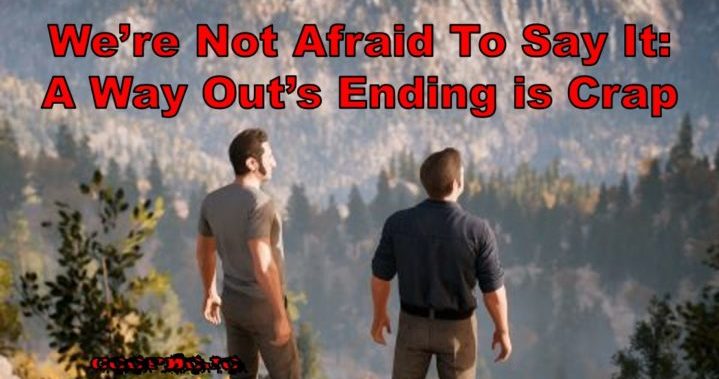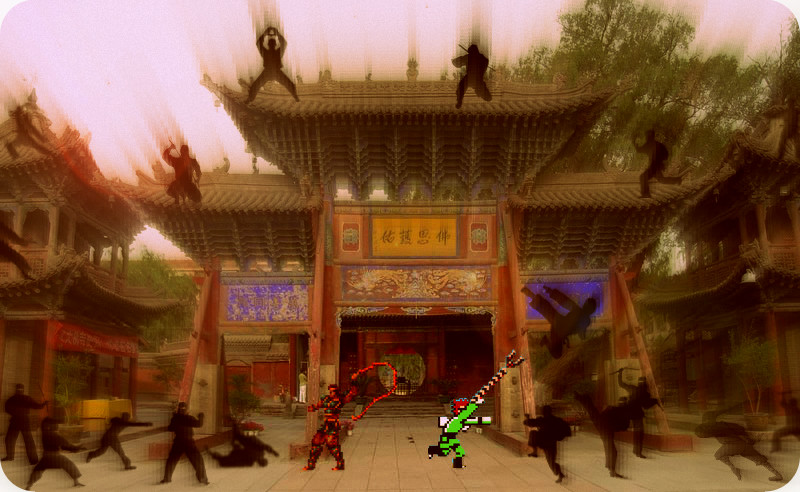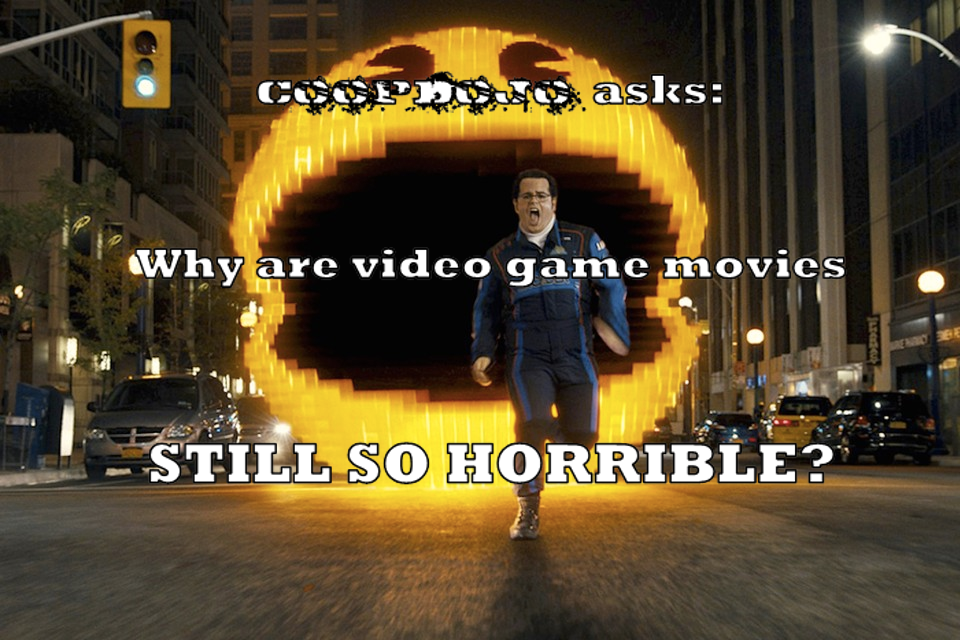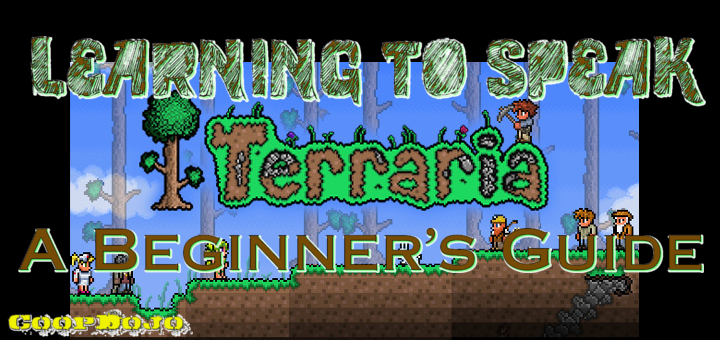
We’re Not Afraid To Say It: A Way Out’s Ending is Crap
We’ve been a little coy about our criticism of A Way Out. The game is mostly awesome. The cooperative experience that it provides is unlike anything else we’ve seen. You play one of two criminals working to break out of prison and seek vengeance against the person who put you (both) in there. Even that description, though, is deceptively simple and there’s a lot more to the game than that. Levels are consistently well designed and nicely varied. There are gun battles and car chases as well as puzzle solving and stealth scenarios. The characters are all well written, well acted, and compellingly complicated. It all works really, really well. Until you reach the end. And the end is total crap.

What, is he auditioning for a role in the Tomb Raider movie?
So, if you haven’t played the game and want to avoid spoilers, I’ll put the ending in inviso-text. See, you spend the game escaping prison and working together to overcome a variety of obstacles. You have to find your way out of the prison block, you have to escape through the countryside, and you have to mount your counteroffense all while working together. But, in the end, you discover that one of the inmates has actually been an undercover police officer the entire time. It’s a dramatic moment but one that makes little sense in hindsight (why would the police allow these two to launch an assault on a drug lord by themselves?). Anyway, the two players spend the last round of the game shooting and fighting each other until one wins. It’s like the ending to Double Dragon revamped and expanded for the 21st century.

For an ending that bad, he deserves to be shot.
This is the exact opposite of what an ending is supposed to be. The whole game involves these two guys overcoming obstacle after obstacle together and building a friendship over the course of the game. This ending betrays all of that and, rather than strengthen and add meaning to all of the game’s events, turns everything that came before into a lie. Contrast this to the endings of Left 4 Dead, where you work together to face hordes of zombies before everyone runs to the exit at the end. Those endings were great because you had to decide in those moments whether you wanted to stand by your friends or run if the option opened up. If you’re like me, you probably remember the times a friend left the safety of a helicopter or boat to come save you from the zombies, or maybe you remember the time you saved a friend even if it cost you your escape. At the end of Left 4 Dead, you had the opportunity to become a hero; at the end of A Way Out, you have no choice in how the game plays out.

Connect Four? The only winning move is not to play.
The game is still great. I liked 90% of it a great deal. There’s a chase scene in a hospital that is so expertly choreographed that I thought I was watching a movie. There’s some great dialogue and some profoundly moving moments. The ending doesn’t just unravel a lot of that, it also makes me less inclined to play through the game again. When I play through the game again, I have to pretend that I don’t know the ending is coming and I try not to think about how that ending impacts the moments I’m playing. It’s funny, Josef Feres previous game Brothers had an ending that was every bit as dramatic but made the events of the game more important, more significant and more powerful. That’s a game that I want play through to the very end, bittersweet as it will be. That’s a game that reminded me that even a downer ending can be very uplifting.


